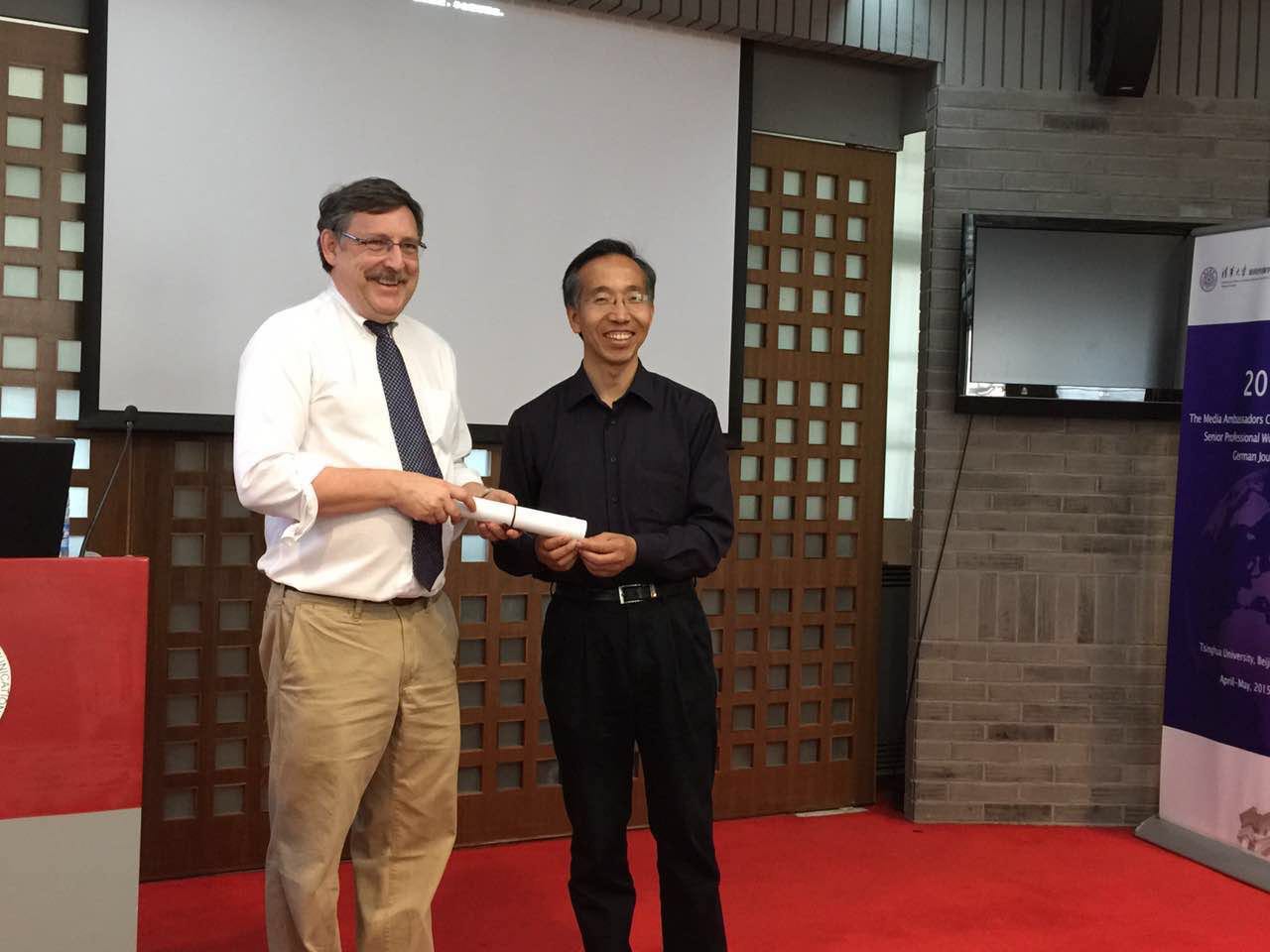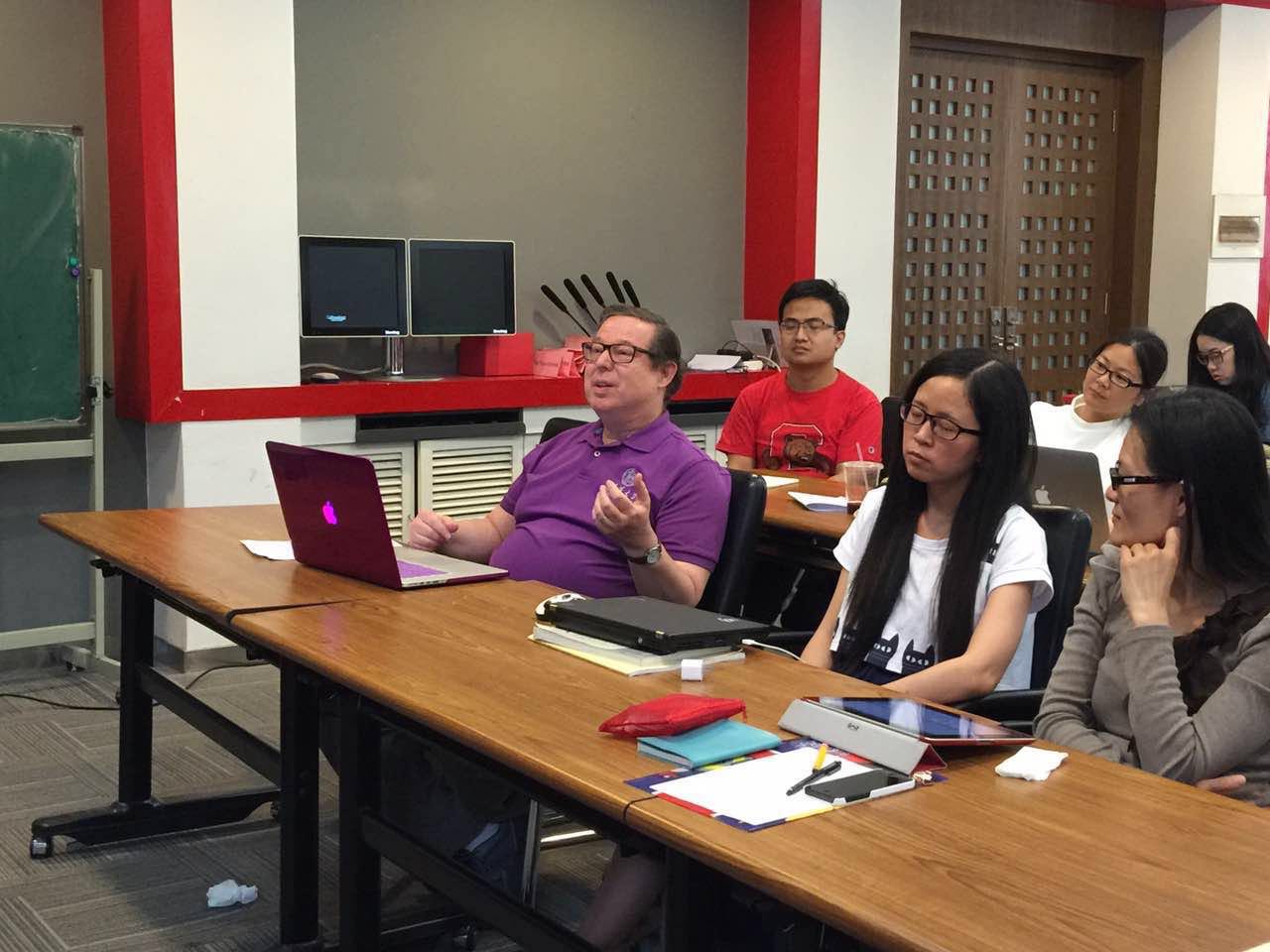University of Florida Professor Wayne Wanta told Tsinghua University students that the quickly changing social media world has altered the way people perceive public policy issues.

Unlike traditional media, social media has resulted in a deeper polarization of public attitudes and is used by many citizens to “reinforce previously held positions,” Wanta told students and faculty of the Tsinghua School of Journalism and Communication on May 13.
Wanta, who is internationally known for his research in agenda-setting by the media,” said that rapidly emerging social media platforms over the past decade have helped public figures bypass the “media filter” of traditional news outlets and deliver their own message directly to the people.
As an example, he noted that 2008 U.S. presidential candidate Barack Obama’s overwhelming support among young American voters was related to his ability to communicate effectively with them on social media. Obama had more than 2 million followers on Facebook, the world’s largest social media platform, while his Republican opponent, John McCain, had just 600,000.
Wanta delivered a speech on public opinion and social media and answered questions from the Tsinghua community. In his remarks about recent U.S. history, he described how some American leaders such as Richard Nixon and Ronald Reagan had set the public policy agenda through the news media, while others, like Jimmy Carter, responded to a policy agenda set by traditional news outlets such as newspapers and television.
Using a “content analysis” model, Wanta said that traditional media around the world have an impact on shaping the agenda, not telling people what to believe.
“It’s not so much what we’re thinking, but what we’re thinking about,” he said.
Today, however, traditional “gate-keepers” in the news business are being challenged by digital media and social media. Citizens sometimes suffer from a “frustration with information overload,” he said, because so much information is available on the Internet, some of it conflicting, contradictory or unreliable.

Professor Wanta has been described by public policy experts as one of the most influential researchers in his generation. He has written more than 150 refereed publications and convention papers. His appearance at Tsinghua marked his seventh visit to China and his second at Tsinghua.
Professor Jianbin Jin, Administrative Dean in School of Journalism and Communication of Tsinghua University-- a leading global expert on the social effects of new media, communication theory and research methods -- hosted the talk. He was joined by Rick Dunham, professor of multimedia journalism at Tsinghua, and an enthusiastic group of journalism students. (By Ruan Yiqin)

